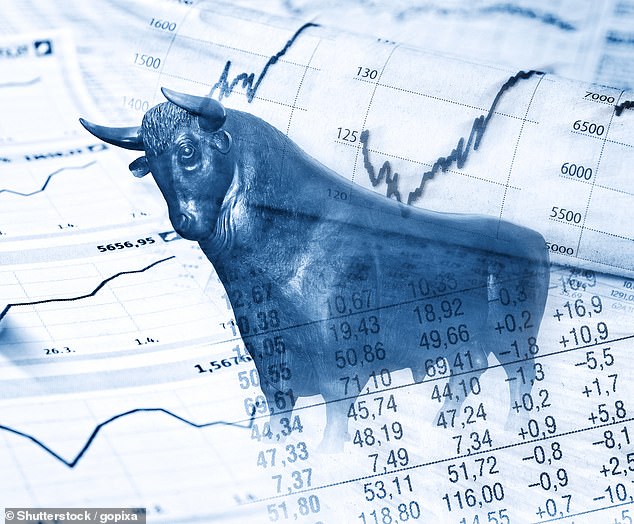These are nervous times. Investors and taxpayers in the UK are frightened that we will all be clobbered by whatever Chancellor Rachel Reeves ends up doing in the Budget on October 30. But investors are worried everywhere. And from a global perspective, the most troubling concerns are in America.
Set aside US politics, and look at the numbers. Last week, the Congressional Budget Office estimated the budget deficit for 2024 would be $1.8 trillion (£1.4 trillion), which works out at about 6.5 per cent of gross domestic product. That is unsustainable.
Maybe the next president, whoever he or she is, will be able to push the can down the road a bit longer, but at some stage there will be a crunch.
Investors will demand higher interest rates to finance the debt, and that will change everything.
The current boom in US equities – with the S&P 500 hitting another record last week and up 22 per cent so far this year – is justified by the assumption of cheaper money next year.

Looking ahead: We all know that bull markets come to an end
The fact that bond yields have so far remained stable, despite the huge government deficit, depends on that too. But the Federal Reserve can only continue to cut rates if inflation keeps falling.
If there is any serious evidence that the US’s consumer price index is starting to push up again – and the latest number of 2.4 per cent was slightly disappointing – that support withers away.
So American equities are vulnerable. It has been an astounding boom, and investors everywhere who hold US shares will have had a wonderful ride.
But we all know that bull markets come to an end – in either a whimper or a bang. Somewhere out in the future, one or other is in store. What can we say about that?
Well, commentators in America are in the usual camps, with the larger and more established ones generally expecting markets to keep performing well, and maverick advisers warning, if not of a crash, at least of a ‘correction’.
I like the idea of a correction, technically a 10 per cent fall in the market, as reflection of the idea that things have got a bit out of hand but if prices come down a bit everything will be hunky-dory. On a very long view that must be right. Never bet against the US economy.
But some work by the London-based consultancy Longview Economics suggests that the next few months could be very bumpy.
It uses complex pricing models to come to this conclusion, but the punchline is that there is ‘a high likelihood of an imminent ‘wave of risk aversion’, and that ‘this bull run is due a major setback’.
My own view is that since the US bull market has run for two years, at some stage soon there will inevitably be a set-back, and the questions really are about the timing and extent of the decline.
On the first, the trigger could be US politics, a worsening of the already deeply troubling international conflicts, a sharp jump in inflation – or simply one of the sudden shifts in mood that sometimes take place without any specific cause.
On the scale of the decline, I feel that as far as the US economy is concerned there is more likely to be a mid-cycle pause than a serious recession.
If that is right, even a sharp fall in markets would be reversed fairly soon.
What is beyond dispute, though, is that this has become an unloved bull market.
If selling really picked up pace, a lot of weak holders would feel it was time to take some profits.
And us? For UK investors there is an immediate excuse to take profits, be they on US holdings or anywhere else. It is the near-certainty that capital gains tax will be pushed up in the Budget. So it is a no-brainer for anyone fortunate enough to have some gains they were thinking about taking to get on with it fast, if they are not held in a tax-efficient pension or Isa. There is good anecdotal evidence they are doing just that.
If there is going to be a sharp fall in US markets, it would be naive not to expect one here too.
DIY INVESTING PLATFORMS

AJ Bell

AJ Bell
Easy investing and ready-made portfolios

Hargreaves Lansdown

Hargreaves Lansdown
Free fund dealing and investment ideas

interactive investor

interactive investor
Flat-fee investing from £4.99 per month

Saxo

Saxo
Get £200 back in trading fees
Trading 212
Trading 212
Free dealing and no account fee
Affiliate links: If you take out a product This is Money may earn a commission. These deals are chosen by our editorial team, as we think they are worth highlighting. This does not affect our editorial independence.
This article was originally published by a www.dailymail.co.uk . Read the Original article here. .


